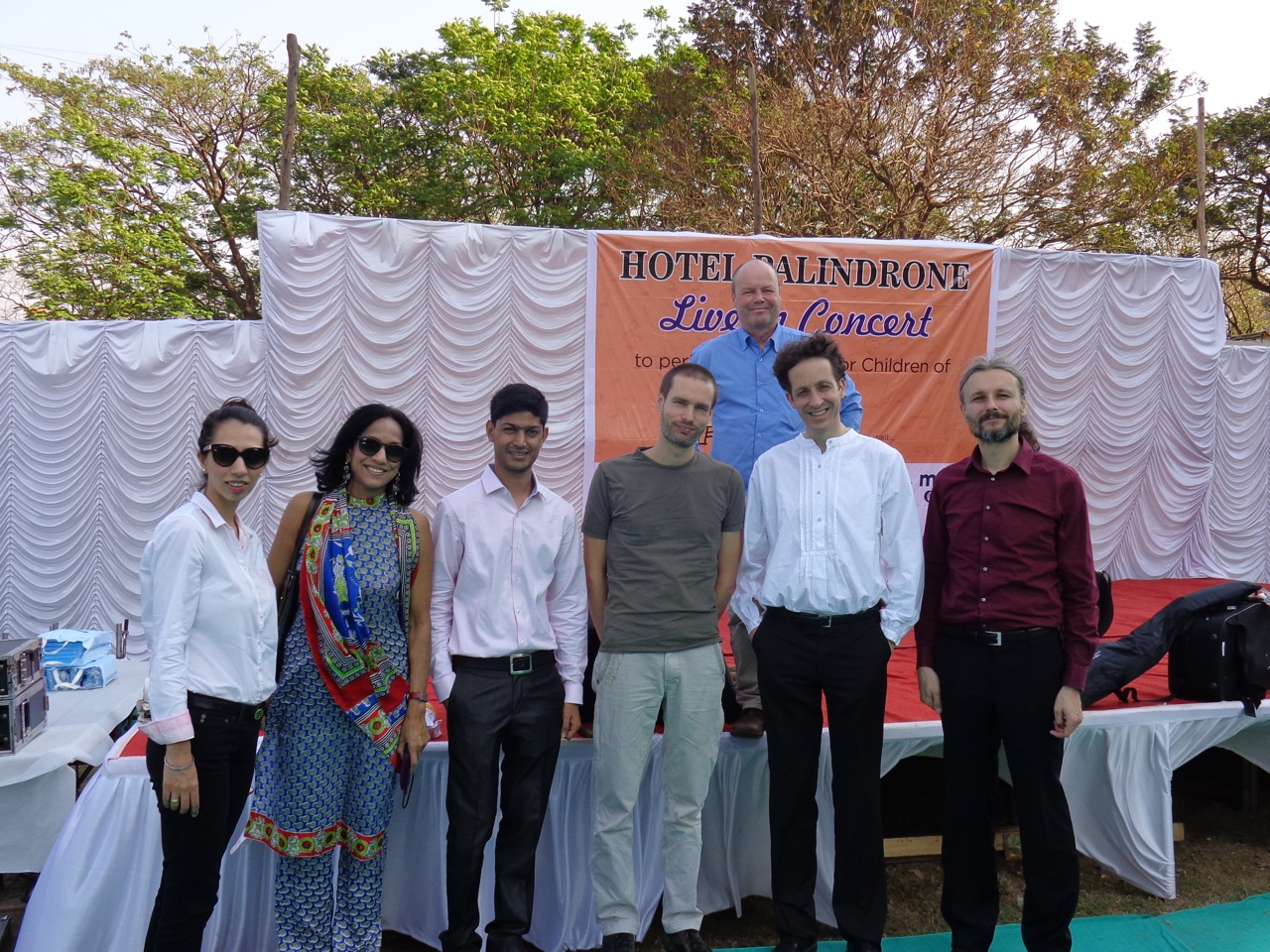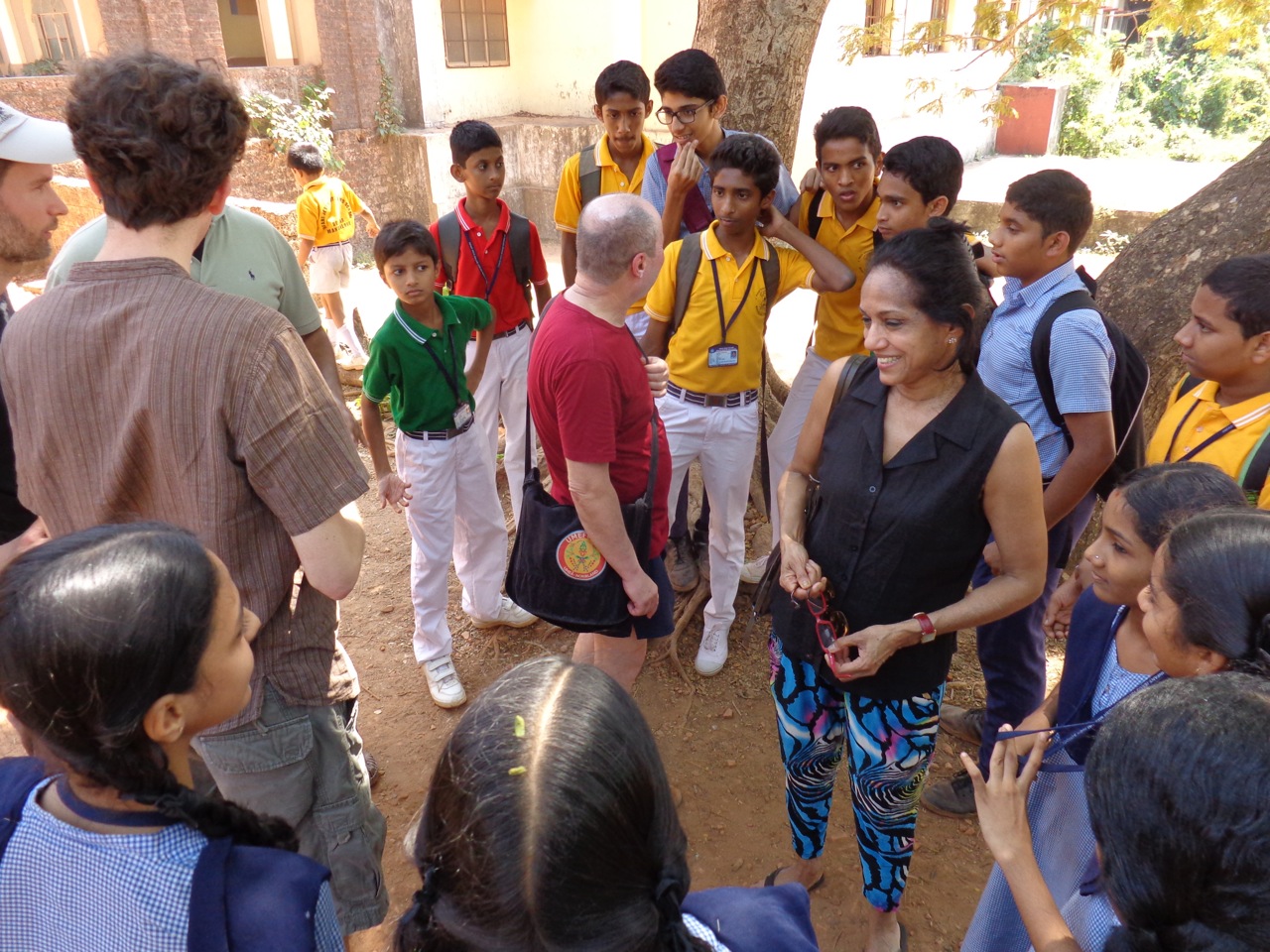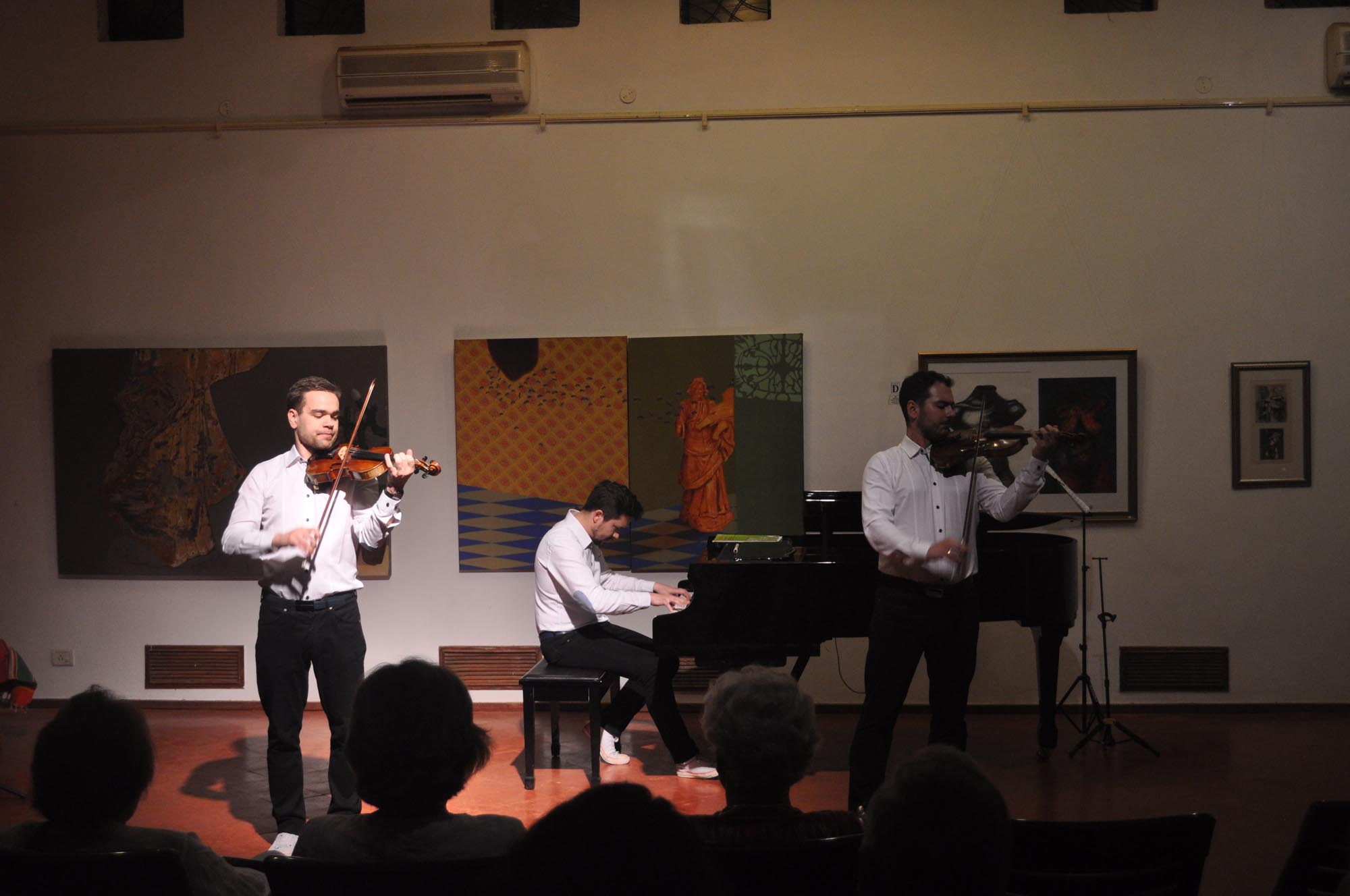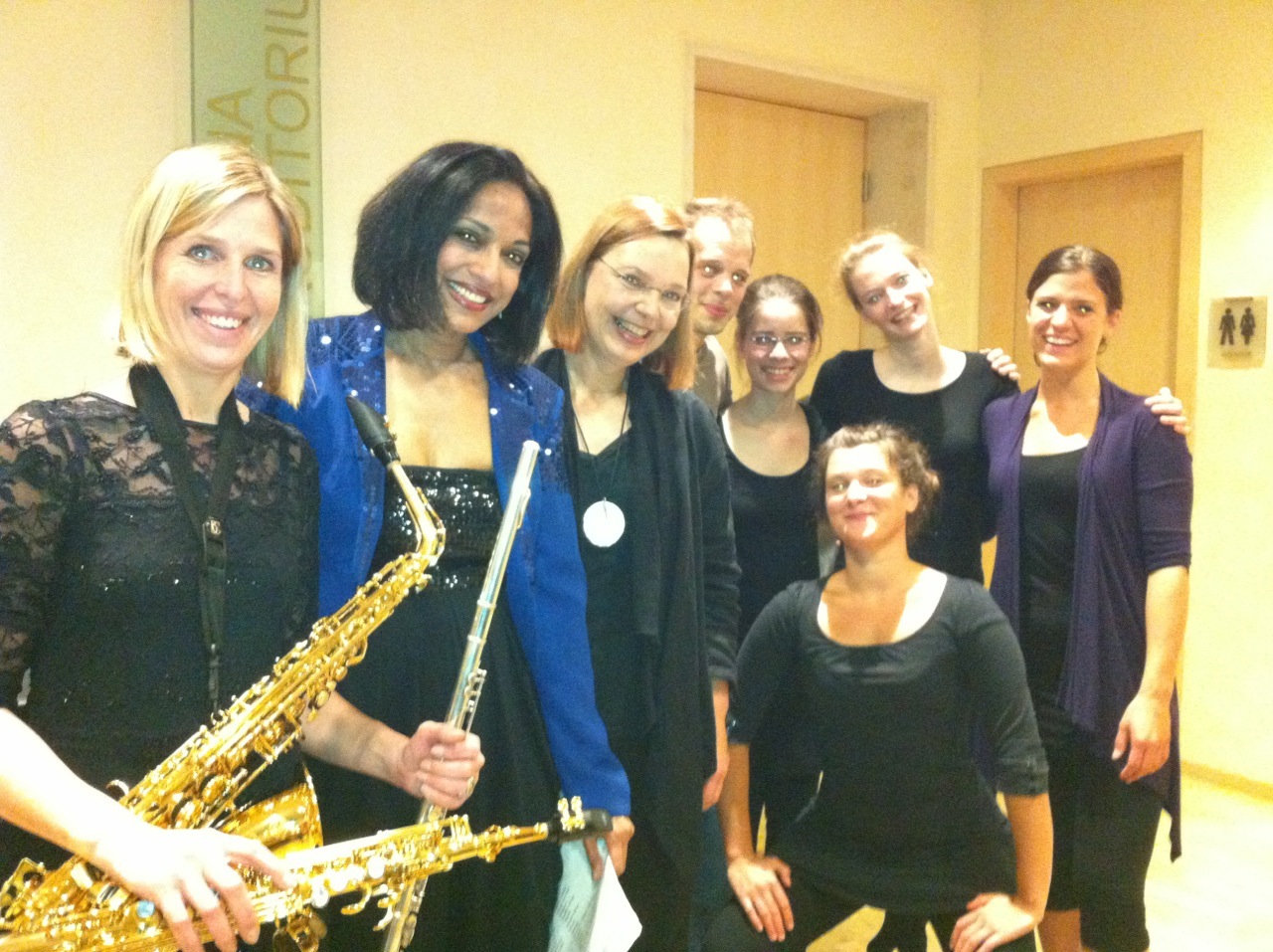Marialena Fernandes
Nikhil Sardana: Please share your background with us.
Marialena Fernandes: I grew up in Bombay in a family of four sisters and one brother. My parents came from Goa and Mangalore and are Roman Catholic by religion - conversion through colonisation.
Ever since I can remember, music has been the most essential element of my being. This sounds facetious, almost pathetic, unfortunately it's a damned fact. The story goes as far as I may believe what my mom later related. I was two and a half years old, in the most forbidden room of our house; the kitchen, where I enjoyed relishing tomatoes with salt and chilli powder, when I suddenly heard a wrong note on the piano played by my mom. I apparently shrieked out, as the note she struck was an accidental named sharp or flat between the white keys, which at that age I couldn't put a name to! Mom was aghast and got pleasure out of teasing me by repeating several black keys in order to test the coincidence behind my exclamation. Lo and behold she lost every time. That's how it all began.
The passion was inevitably always inherent, although I had no idea why. Examinations of the Trinity College London followed, topping the Indian list almost every year till the completion of my LRSM (Licentiate of the Royal Schools of Music). Of course the tension of strange cultural differences within our family orientation were always present - dad was a structural engineer and more into South Indian Carnatic music, while mum was a passionate soprano and inclined towards European operatic singing. It wasn't easy, although it didn't seem to pose any problem for me.
My greatest gift and privilege was the teacher and role model in my musical life, Madame Olga Crean. Whenever I had a chance, I would grab the piano at home and reinterpret any song I heard on the radio. Absolute pitch seemed to have been an added advantage. Another important influence of my childhood in Bombay was regular community singing. Whenever we had guests at home, there would be at least an hour of all types of songs in English, Hindi and Konkani (the mother tongue of my parents) before dinner. This was a ritual as everyone would join in, whether he or she could sing or not. Our relatives and friends seemed almost to expect this procedure as an important part of the social atmosphere, which obviously broke barriers of all sorts. My mother seemed to solve every problem with her beautiful voice.
NS: What are your thoughts on folk music?
MF: My contact and connection to folk music began by chance, as so often in my life, what one calls coincidence seemed to be a sort of destiny. The prestigious folk group Hotel Palindrone had heard me perform at a couple of shows of not only classics, but my never ending improvisations as well. On their request for me to experiment with the group (four of them with at least 23 different folk instruments!) I couldn't resist the invitation. That was the birth of my folk experience in 2009 and ever since, the hunger for folk music knowledge hasn't left me.

The combination of folk tradition and the evolution of 20th century folk revival is what is so exciting. The oral and verbal transmission of music has always been accepted by tribes and heartily welcomed by the folk. Authenticity, spontaneity and most of all anonymity, has always had positive results as far as music is concerned. The handing down of vivid tales related through melody, song and dance; joys and woes of daily life and habits. The musicians of Hotel Palindrone are professional folk researchers who insist on explaining and documenting every piece of music they perform.
[gallery type="slideshow" size="full" ids="2228,2229,2230"]
NS: Tell us more about your PhD studies. What was your topic of research and how did you go about conducting this?
MF: After the death of my parents (father in 1999 and mother in 2005), there was the sudden urge to discover more about my roots. Who was I? Where did I come from? Why the undying passion for music in me? This goaded me almost in a hypnotic form, to the idea of putting my thoughts to paper. Why not the theme "Konkani Song" with respect to 450 years of Portuguese colonisation?
Easier said than done. The University of Music and Performing Arts (Vienna) was enthralled by the concept however, unknown was the word Konkani and what it connoted. It didn't seem to matter at all, that although on the faculty, I was once more the scholar sharing the same bench with my very own students!
It took me nothing less than 6 years of search and research beginning in Goa, through Portugal; finally ending up with a sabbatical in the US State of Illinois at the Robert Browne Library for World Music, where I found nothing less than almost 2 million books on Asian literature.
The theme of my dissertation was - "The Konkani Song - Roots - Development - Documentation“
NS: How do you see yourself influencing young musicians in India and around the world?
MF: The first thing that comes to my mind is to lead by example - to be a role model! The only form of conviction, which one can use as an educator, is to be able to have experienced everything one wants to share. My opinion is that teaching is sharing. I must be prepared to make and accept mistakes and even share these with my students. Only then can I win their trust. Music is a mutual exchange of emotion.
My youth in India was not necessarily more rosy than many of the young who want to learn music. Private tuition, no institutional education, but the undying passion, diligence and discipline is what kept me going. Of course not forgetting the ingredient of love which inevitably involves risk. I must admit my general education with a degree in psychology and philosophy does help me at times to solve many a personal problem with some of the young enthusiasts.
NS: Tell us about your projects in India. How often do you visit here? Any upcoming trips?
MF: To be honest, although I have been living in Europe for over 40 years, I feel I never left India. The strength and power of our country in its diversity, acts like a magnet which brings me back. There is so much to learn, to see, to hear and react to. The multidisciplinarity and transculturalty within the country is absolutely dynamic and always a fascination for musical escapade.
Since 1997, I have been involved in projects in India pertaining not only to performance and education, but also with an innate desire to inject the music lover bug into the blood of young talent. It is almost impossible to succeed among all, but even if one or two searchers are willing, then the task has a meaning and a reason to continue. My vision has never stopped, ever since I visit India annually - be it Mumbai, Delhi, Kolkata, Pune and Chennai. The main issue is to hold workshops in which the passion is transmitted through performance, demonstration and dialog. Much can be achieved without words, but only through the sound and touch of music.
Part of the workshop ritual, in which teachers, parents and students but also lay and secular enthusiasts participate, is a professional performance in the form of either a solo recital almost always with verbal presentation and moderation, or chamber music in which musicians (professional and amateur) use various instruments to play together in dialogue with each other. Since 2010 the Festival Con Brio has been striving with the same ideals and visions I mentioned earlier. This year will be the 7th event, which I am happy to attend and be a part of. A special thank you to our very own Furtados, the indispensable music company in India for their encouragement and support.
My latest passion project is to connect several disciplines together, in particular, music and sport. In 2015, I laid a foundation in the colonised cities of Mangalore, Bangalore and Goa, where I challenged artists from Europe with my endeavour. I brought them to these cities in South India and exposed them to my pioneer experiment. What joy in the faces of kids and youth playing football together to the beat of a bag pipe or a mandola. The mere pulse seemed to excite them to play better and brought me once again to a new wave suggesting - let's play with the music, use the ball if necessary!

The unexpected success of this concept not only among the European artists but also in combination with the Indian organisers motivated me to a new decision - the quest for passion in all its forms.
2016 was the next venture, this time with The ThreeX in the same three cities, with the same concept and believe it or not, the same success!

Now I feel confident of trying this for the third time in 2017 with new partners, new instruments but definitely with the same concept. Sport and Music.
Just to add a coda to my thoughts. I have the good fortune, maybe a God given talent to be able to challenge any sort of music. Be it European classical - both in solo and group form which I was educated on, not to deny my love for pop and jazz - but also the curiosity for folk, ethnic, transcription and improvisation. As long as the passion is alive, the sky is the limit! So girls and boys - GO FOR IT.
Here's a beautiful quotation from a great European poet Heinrich Heine (1797-1856) -
"Music is a strange thing. I would almost say it is a miracle. For it stands halfway between thought and phenomenon, between spirit and matter, a sort of nebulous mediator, like and unlike each of the things it mediates–spirit that requires manifestations in time and matter that can do without space."

Further Information -





